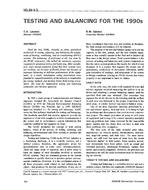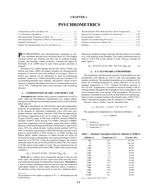Factory-made aggregates of cellular glass with a typical lump size of 10 to 75 mm represent a new type of thermal insulation with drainage properties being applied in Switzerland, Germany, and other European countries. Cellular glass aggregates are used as insulating filling material at the perimeter of buildings as well as under load-bearing foundations. They can serve as insulation drainage layers of garden roofs. The insulation material is manufactured from recycled glass and mineral additives in a thermal process. The aggregates form when slabs of cellular glass crack while cooling down. In order to obtain the required hygrothermal properties, the manufacturing process must be carefully controlled. Despite its low density of approximately 120 to 250 kg/m³, cellular glass aggregate has a high pressure resistance, absorbs hardly any water, and is fireproof. The expected service life is at least 50 years.
Since its first appearance on the market, this insulation material has been thoroughly tested and the effect of water clinging to the aggregate has been investigated in the laboratory. To confirm the assumptions, the average moisture content and the thermal conductivity of the material in service was also determined by material sampling on existing buildings. This paper gives an overview of the different tests that must be performed in order to obtain a German and European Technical Approval. It summarizes the aggregate properties of different manufacturers and reports the practical experience gained by in-situ investigations.
Citation: Thermal Performance, International Conference, 2010
Product Details
- Published:
- 2010
- File Size:
- 1 file , 3.5 MB
- Product Code(s):
- D-BUILDINGSXI-48


